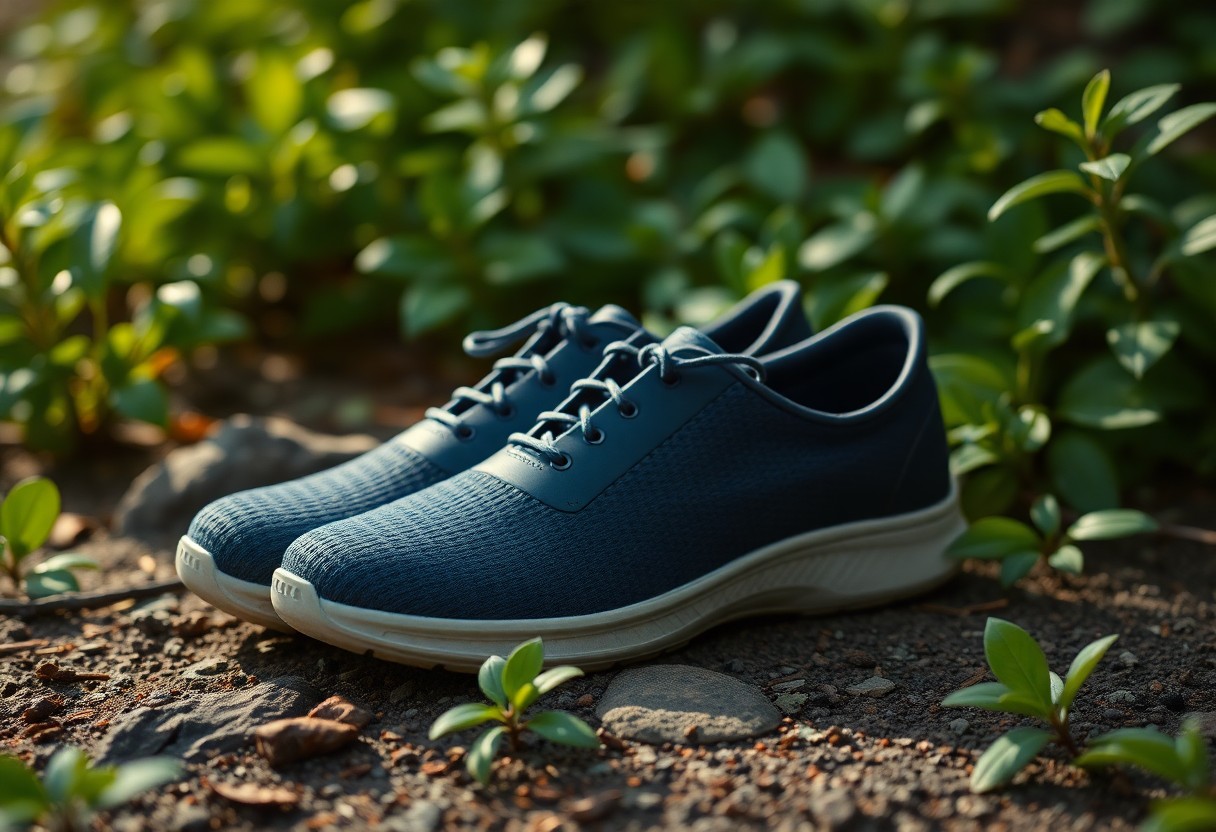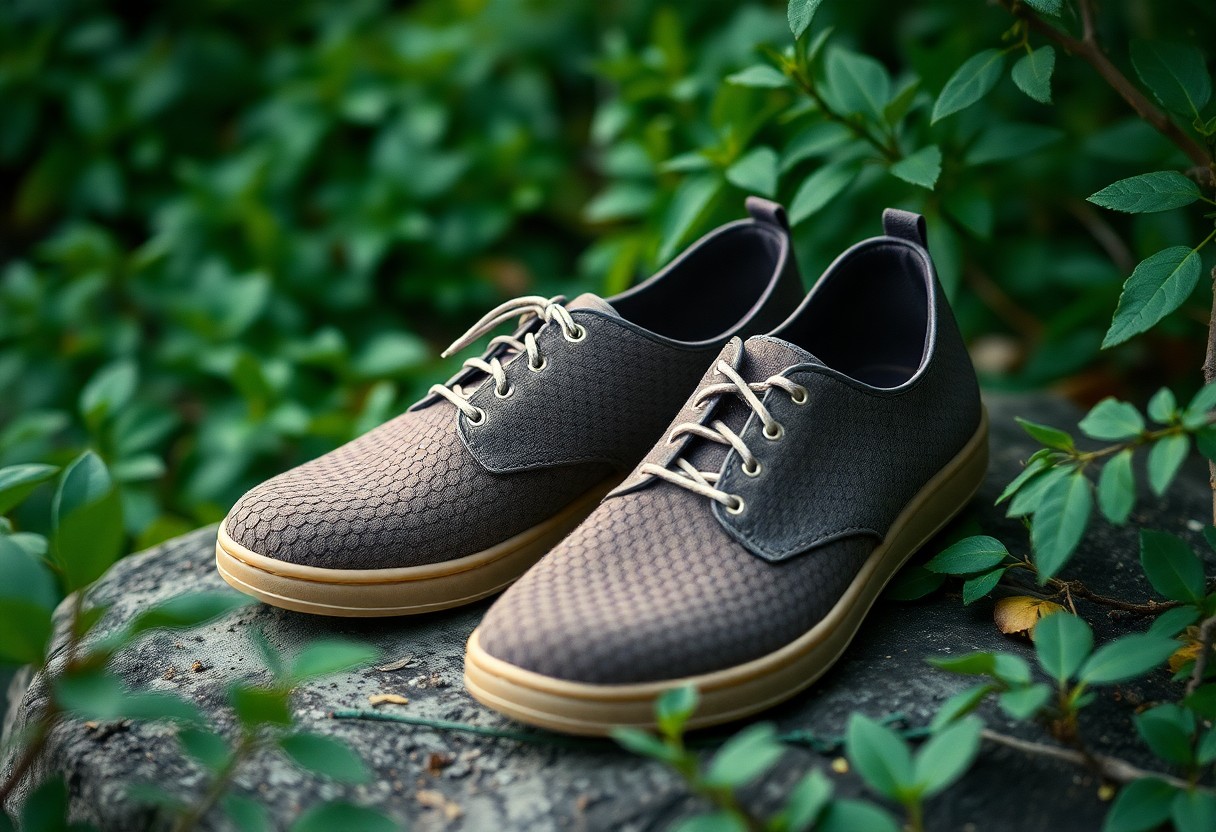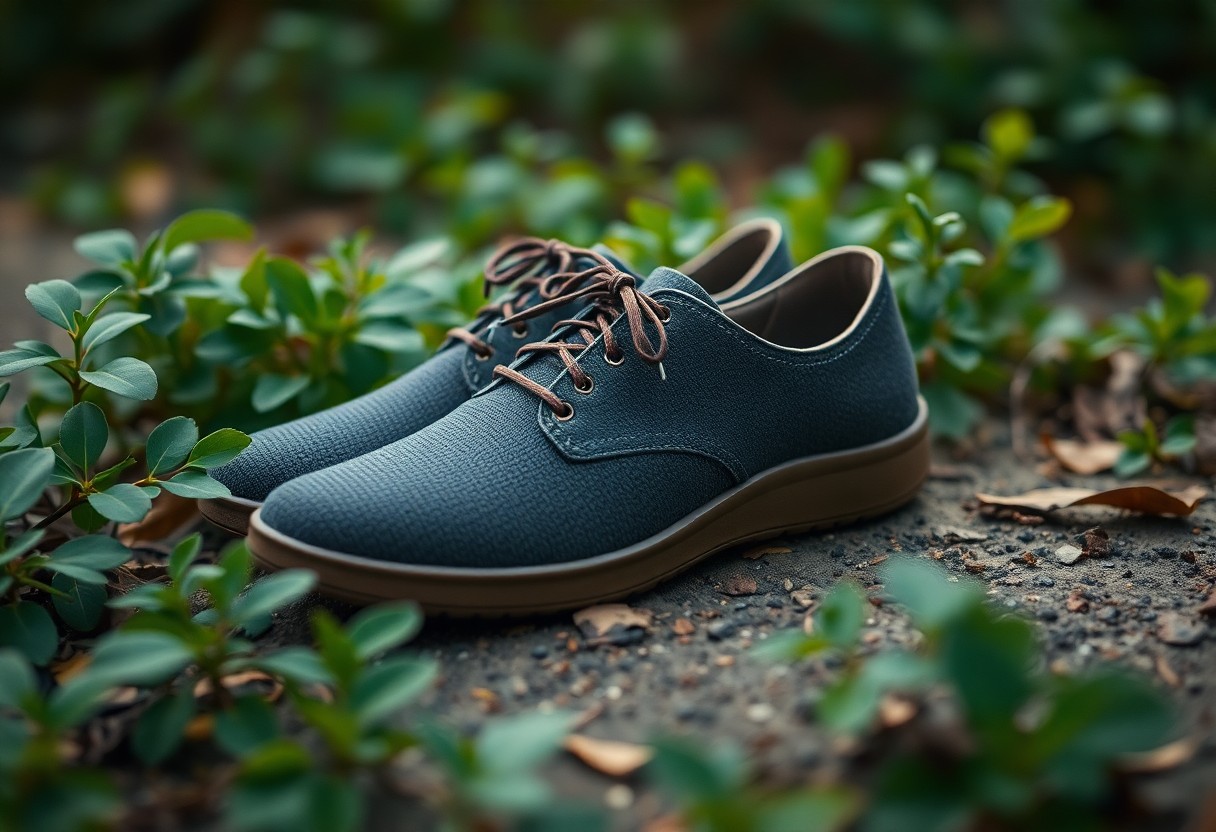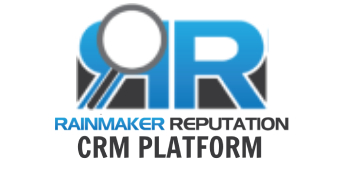The growing demand for footwear that embodies personal values—such as being minimalist, functional, and environmentally friendly—has led to the rise of Xero Shoes as a prominent brand in the market. These innovative shoes merge barefoot flexibility with eco-friendly materials, including soles made from recycled products and dyes sourced from plants. This raises an important question: how sustainable truly are Xero Shoes? With features like carbon-neutral shipping and durable designs aimed at reducing waste, Xero Shoes represents a step towards sustainability, though challenges remain with certain synthetic elements. By choosing Xero Shoes, you actively contribute to a more sustainable future while remaining aware of your environmental impact, even if compromises exist. If you’re seeking footwear that highlights eco-conscious practices, here are essential insights to consider.
Unlock the Advantages of Eco-Friendly Footwear for Sustainable Living
Unlike traditional shoes that often rely on synthetic materials and harmful production methods, eco-friendly footwear is created with sustainability at the forefront of every production phase. These forward-thinking shoes incorporate recycled, biodegradable, or plant-based materials, significantly decreasing waste and carbon emissions. For enthusiasts of barefoot movement, brands like Xero Shoes effortlessly blend this philosophy with minimalist designs, enabling you to tread lightly on our planet—essentially walking with a lighter footprint, both in a physical and environmental sense.
Delving into the Concept of Eco-Friendly Footwear
At its essence, eco-friendly footwear refers to shoes made from sustainable materials like organic cotton and natural rubber, while adhering to ethical manufacturing standards. These products consciously avoid toxic dyes, excessive packaging, and non-recyclable components, ensuring that your purchasing choices contribute to healthier ecosystems and fair labor practices. It’s essential to recognize that the focus extends beyond the shoes you wear; it encompasses the processes and practices that lead to their creation.
The Rising Trend of Minimalist Shoe Designs and Their Impact
As a viable alternative to traditional cushioned footwear, minimalist designs—particularly barefoot shoes—have surged in popularity due to their natural feel and environmental benefits. By cutting down on excess materials, these shoes significantly lower waste and energy consumption, embodying the “less is more” philosophy. This shift is evident in brands like Xero Shoes, which utilize thin, durable soles and lightweight fabrics, thus minimizing resource use. This evolution reflects a growing awareness that simpler designs can effectively reduce your carbon footprint without compromising functionality.
For instance, Xero Shoes employs lightweight materials and innovative techniques to craft footwear that not only feels great but also honors the environment. This thoughtful approach resonates with individuals who prioritize sustainability in their lifestyle choices.
The Vital Importance of Sustainable Practices within the Footwear Industry
The footwear industry significantly contributes to pollution and landfill waste, with billions of shoes discarded every year. Adopting sustainable practices, such as using recycled plastics and water-based adhesives, plays a crucial role in mitigating these issues. By choosing eco-friendly options, you support innovative practices that protect ecosystems and minimize environmental harm. However, it’s important to recognize that the stakes are high: the fast fashion industry’s reliance on synthetic materials results in the emission of microplastics and the depletion of natural resources. In contrast, sustainable brands focus on longevity and circularity, ensuring your footwear does not contribute to this ongoing environmental crisis.
Unveiling the Sustainable Materials Used in Xero Shoes
If you’re on the hunt for eco-friendly barefoot shoes, Xero Shoes stands out for its commitment to sustainability through the use of recycled PET and hemp, effectively reducing waste and environmental impact. Their dedication to green alternatives ensures that your footwear aligns with your values—representing a literal and metaphorical lighter footprint.
Innovations in Eco-Friendly Recycled PET Laces
Sustainable practices can begin with small changes, and Xero Shoes’ laces are made from 100% recycled PET, which transforms plastic waste into durable, functional components. By opting for these laces, you contribute to diverting plastic from landfills while enjoying long-lasting performance, further aiding in the quest for a cleaner planet.
The Advantages of Hemp Uppers for Eco-Conscious Consumers
The environmental benefits of Xero Shoes’ hemp uppers are considerable. Hemp is a low-water, pesticide-free crop recognized for its ability to restore soil health. Its natural breathability and strength make it an ideal choice for barefoot shoes, providing comfort without compromising the health of the planet. By opting for hemp, you contribute to a cleaner future due to its rapid growth and carbon-sequestering properties. Unlike synthetic fabrics, hemp naturally biodegrades, reducing long-term waste accumulation. Additionally, its antimicrobial properties help maintain freshness in your shoes for extended periods.
When comparing hemp to traditional materials:
| Hemp | Requires 50% less water than cotton |
| Synthetics | Derived from fossil fuels, non-biodegradable |
Evaluating the Environmental Impact of Minimalist Shoe Design
Xero Shoes’ minimalist designs not only cut down on material waste but also reduce your carbon footprint by requiring fewer resources during production. The streamlined production process ensures that less energy is consumed, and the absence of unnecessary padding or synthetic layers significantly decreases landfill contributions. Choosing minimalist footwear supports a design philosophy that emphasizes efficiency and sustainability, aligning with the notion of walking with a lighter footprint—both in a literal and environmental sense.
Utilizing Lightweight Materials to Enhance Sustainability
The environmental advantages of Xero Shoes are evident in their use of lightweight, low-impact materials, including recycled rubber soles and vegan-friendly fabrics. These choices significantly lessen the strain on natural resources while maintaining high performance. These materials additionally help decrease transportation emissions, as lighter footwear requires less fossil fuel during shipping, contributing to a healthier planet.
The Long-Lasting Durability of Xero Shoes
Beyond their eco-friendly materials, Xero Shoes are designed for durability, reducing the need for frequent replacements. The reinforced stitching and high-quality rubber outsoles are engineered to withstand wear and tear, ensuring that your shoes remain reliable for years. This durability directly translates to reduced landfill waste, making them a smart investment for sustainable living.
Indeed, Xero Shoes’ longevity is underscored by a 5,000-mile sole warranty, emphasizing their commitment to lessening environmental impact. Fewer replacements lead to lower resource consumption, and their repairable design allows you to extend the life of your shoes even further. For eco-conscious consumers, this combination of durability and sustainability is truly transformative.
Understanding the Importance of Certifications and Ethical Practices
Xero Shoes further demonstrates its commitment to sustainability by adhering to rigorous certifications and ethical practices. Their transparency in sourcing and manufacturing ensures that your barefoot shoes resonate with eco-friendly values. From carbon-neutral shipping to recycled materials, they prioritize minimizing environmental harm while delivering high-performance footwear. Emphasizing the idea of walking with a lighter footprint—both literally and environmentally—their efforts reflect a sincere dedication to planet-friendly practices.
The Importance of Fair Trade Certification for Ethical Consumerism
By choosing Fair Trade-certified materials, Xero Shoes actively champions ethical labor conditions and fair wages for workers. Your purchases help empower communities and foster social equity. While not every product carries this certification, their ongoing commitment to improving supply chain ethics signifies meaningful progress toward a more responsible future.
Understanding PETA-Approved Vegan Certification and Its Importance
Impact matters, and Xero Shoes’ PETA-Approved Vegan certification guarantees that your footwear is 100% free from animal-derived materials. This certification aligns with a cruelty-free lifestyle while also minimizing the environmental impact associated with leather production. Their vegan options illustrate that ethical standards can be maintained without sacrificing performance.
Moreover, PETA’s approval involves a rigorous audit of supply chains to ensure there is no animal exploitation. Xero Shoes’ commitment in this regard means you can trust their claims, avoiding the common greenwashing pitfalls that are prevalent in the industry. For eco-conscious consumers, this certification provides an added layer of assurance regarding your sustainable choices.

Real-Life Case Studies: Personal Experiences with Sustainable Footwear
Many barefoot shoe enthusiasts have reported that Xero Shoes resonate with their eco-conscious values, appreciating the brand’s minimalist design and sustainable materials. Whether focusing on waste reduction or opting for vegan-friendly choices, users highlight how these decisions mirror their commitment to a greener lifestyle—similar to walking with a lighter footprint, both literally and environmentally.
Analyzing Lifecycle Impact of Eco-Friendly Shoes
Xero Shoes is dedicated to minimizing environmental harm throughout every phase of their product lifecycle, from production to disposal. Their durable construction enhances wearability, while recyclable components assist in reducing landfill contributions. You will discover that their lifecycle approach effectively balances performance with environmentally friendly practices.
Feedback from Sustainability Advocates and Their Insights
Feedback from eco-conscious wearers highlights strong support for Xero Shoes’ transparency and ethical sourcing. Advocates emphasize the brand’s initiatives, such as utilizing recycled materials, which resonate profoundly with their personal sustainability objectives.
Upon a deeper examination of these testimonials, it becomes clear that durability and low-carbon manufacturing are often cited as standout features. However, some advocates suggest that there is room for enhancement in end-of-life recycling programs, encouraging the brand to innovate further in circular practices.

The Role of Consumer Choices in Advancing Sustainability
Your sustainable habits begin with you. The choices you make as a consumer shape market demand, influence brands, and drive the move toward eco-friendly practices. By choosing products like Xero Shoes, you endorse companies that emphasize minimal waste and ethical sourcing, proving that small actions can lead to significant change.
Environmental Consequences of Your Purchasing Decisions
Before making a purchase, reflect on your environmental footprint. Each transaction sends ripples through the ecosystem—from resource extraction to landfill waste. Selecting barefoot shoes made from recycled materials or biodegradable components can considerably reduce your impact, reinforcing the concept of walking with a lighter footprint—both literally and environmentally.
The Crucial Need for Consumer Education and Awareness
Understanding the lifecycle of your footwear is essential. The more informed you are, the better your choices become. Brands like Xero Shoes openly share their processes, empowering you to avoid greenwashing and align with genuine sustainability.
Consumer awareness extends beyond surface-level labels. Researching materials, labor conditions, and carbon footprints enables you to make well-informed decisions. Ignorance fuels unsustainable practices, while knowledge fosters accountability and progress in sustainable consumerism.
The Growing Demand for Sustainable Products and Its Implications
The increasing interest in eco-friendly footwear reflects a broader cultural shift. As more individuals prioritize sustainability, brands are responding with innovations such as plant-based soles and zero-waste packaging, demonstrating that your consumer choices can instigate important changes within the industry.
Your behaviors shape market dynamics. Your preference for sustainable options pressures competitors to adapt or risk becoming obsolete. Fast fashion and synthetic materials are declining as conscientious consumers advocate for alternatives, progressively fostering a healthier planet.
The Financial Considerations of Sustainable Footwear Choices
Opting for eco-friendly barefoot shoes, like those provided by Xero Shoes, reflects a growing trend towards sustainable consumerism. Although these shoes may require a higher initial investment compared to conventional options, their durability and minimal environmental impact frequently justify the expense. By supporting brands that prioritize ethical materials and production, you contribute to a circular economy that reduces waste and promotes fair labor practices. Like walking with a lighter footprint—both literally and environmentally—your purchase aligns with values that benefit both the planet and future generations.
Evaluating the Cost Factors for Consumers When Choosing Footwear
The initial price of sustainable barefoot shoes may be higher than mass-produced alternatives, influencing your decision-making process. However, their extended lifespan and repairability often offset this cost over time. Brands like Xero Shoes emphasize quality materials, resulting in fewer replacements and less waste. While the initial price may raise concerns, the value-per-wear makes them a financially sound choice for eco-conscious consumers.
Long-Term Benefits of Investing in Eco-Friendly Products
In addition to reducing your carbon footprint, eco-friendly barefoot shoes offer health and financial benefits. Their natural designs encourage better posture and foot strength, potentially lowering medical expenses associated with inadequate footwear. By making sustainable choices, you also promote innovation in green materials, driving transformative change across the industry.
For example, Xero Shoes employs recycled and vegan materials that minimize resource depletion and pollution. Over time, your investment in these products contributes to normalizing sustainable practices, encouraging more brands to adopt eco-conscious methods. This ripple effect can produce broader environmental benefits, including diminished landfill waste and reduced carbon emissions.
Market Trends and Future Projections in Sustainable Footwear
Globally, the demand for sustainable footwear is increasing, with barefoot shoes capturing the interest of health- and eco-conscious consumers. Brands like Xero Shoes lead the charge, utilizing biodegradable and recycled materials to meet this growing demand. As awareness expands, we can anticipate a rise in competitive pricing, making eco-friendly options more accessible to a broader audience.
Trends indicate a shift towards transparency, with consumers demanding detailed information regarding ethical sourcing and production practices. This push for accountability is reshaping the industry, although challenges such as greenwashing persist. By remaining informed, you can make choices that align with sustainability goals, ensuring your purchases drive impactful change.
Confronting Challenges in Sustainable Shoe Production
Despite the escalating demand for eco-friendly footwear, producing sustainable barefoot shoes like Xero Shoes presents several challenges. The limited availability of certified materials, high production costs, and the need for durable yet biodegradable designs complicate the process. You may question whether these obstacles compromise sustainability—fortunately, brands dedicated to innovation are actively finding solutions that ensure your shoes align with your values.
Challenges in Sourcing Sustainable Materials for Production
A significant hurdle is the procurement of ethically produced, eco-friendly materials. Every element must adhere to stringent environmental guidelines, from recycled rubber soles to plant-based dyes. You will appreciate that Xero Shoes prioritizes suppliers who maintain transparent practices; however, scaling these responsibly remains a considerable challenge for the industry.
Finding the Right Balance Between Cost and Quality
Behind every sustainable shoe lies a challenging equation: affordability versus durability. Eco-materials typically come with a higher cost, yet cutting corners can compromise longevity—something you certainly won’t accept in footwear meant for extended use. Brands must navigate this balance without imposing the entire burden onto the conscious consumer.
Challenges arise when budget-friendly alternatives compromise sustainability. For instance, cheaper synthetic options may lower prices but undermine biodegradability. Xero Shoes tackles this challenge by optimizing production efficiency, proving that ethical choices don’t always equate to exorbitant prices.
The Reluctance of the Industry to Embrace Change
A significant obstacle is the footwear industry’s hesitance to abandon fast-fashion models. Traditional manufacturers often prioritize profit over ecological responsibility, making it difficult for sustainable brands to thrive. Your support for eco-friendly companies like Xero Shoes is vital for catalyzing systemic change.
Progress may seem slow due to entrenched practices and lobbying against eco-regulations, but consumer demand—driven by your choices—is propelling brands towards greater transparency. Change is underway, but it requires ongoing advocacy from consumers who prioritize sustainability over convenience.
Innovations in Eco-Friendly Footwear Technology and Design
Stay ahead in the realm of sustainability with Xero Shoes’ groundbreaking advancements in eco-friendly footwear. Their innovations focus on minimizing environmental impact while ensuring exceptional performance, blending comfort with eco-conscious design. Through the use of recycled materials and low-waste production methods, these shoes allow you to walk with a lighter footprint—both literally and environmentally.
Enhancements in Sustainable Materials Utilization
Xero Shoes incorporates recycled polyester, hemp, and plant-based dyes to lessen the ecological damage associated with traditional fabrics and modern eco-friendly alternatives. These materials reduce water usage and carbon emissions, providing you with durable footwear that does not compromise the health of the planet.
Biodegradable Components for a Sustainable Future
Leading the way in sustainability, Xero Shoes integrates plant-based outsoles and natural rubber, which decompose faster than synthetic counterparts. This strategy effectively diminishes long-term waste, aligning your footwear choices with a circular economy.
Innovations in biodegradable technology ensure these components break down efficiently, leaving minimal environmental traces. By selecting shoes with these features, you actively contribute to alleviating landfill burdens and reducing microplastic pollution.
Fusing Technology and Sustainability for Footwear Innovation
At the intersection of innovation and ecology, Xero Shoes employs 3D printing and precision engineering to minimize material waste. Their processes emphasize efficiency, ensuring that every step you take is supported by sustainable technology.
Sustainability is not just a buzzword; it is embedded in their operational ethos. With solar-powered factories and carbon-neutral shipping, Xero Shoes exemplifies how high-performance footwear can coexist with environmentally friendly practices, empowering you to make a difference with every purchase.
Comparative Analysis: Xero Shoes versus Competing Eco-Friendly Brands
When comparing Xero Shoes to other eco-friendly barefoot brands, you will notice key differences in materials, durability, and sustainability approaches. Here’s a concise overview:
Analysis of Xero Shoes Versus Competitors
| Xero Shoes | Utilizes recycled materials, offers vegan options, and emphasizes minimalism. |
| Competitors (e.g., Vivobarefoot, Merrell) | Provide similar eco-claims but may lack transparency in sourcing and durability. |
Overview of Other Eco-Friendly Brands in the Market
Upon exploring available options, brands such as Vivobarefoot, Merrell, and Freet prioritize sustainability in their products. Here’s how they compare:
Eco-Friendly Barefoot Shoe Brands
| Vivobarefoot | Offers wildhide leather and recycled materials, but at a premium price. |
| Merrell | Combines eco-materials with conventional materials, striking a balance between cost and sustainability. |
Assessing the Strengths and Weaknesses of Various Brands
To determine which brand best meets your needs, consider their respective advantages and disadvantages. Xero Shoes excels in affordability and transparency, while Vivobarefoot offers premium materials at a higher cost. Merrell, on the other hand, may compromise complete sustainability in favor of durability.
In summary, each brand presents its own trade-offs. Xero’s commitment to vegan and recycled materials is commendable, although some users have reported thinner soles compared to Vivobarefoot’s sturdier designs. Merrell’s hybrid approach appeals to consumers seeking a middle ground, but might not fully satisfy purists.
Market Positioning of Xero Shoes in the Eco-Friendly Footwear Landscape
While Xero Shoes may not yet match its competitors in brand recognition, it has carved out a niche by balancing eco-consciousness with affordability. Although not as widely acknowledged as Vivobarefoot, its committed customer base values its minimalist philosophy and sustainable practices.
Moreover, Xero’s direct-to-consumer model helps keep prices competitive, though its limited retail presence may dissuade some potential buyers. Their commitment to a transparent supply chain and carbon-neutral initiatives makes them an attractive option for eco-conscious consumers, even amid ongoing discussions about durability.
Community Engagement and Environmental Initiatives by Xero Shoes
Xero Shoes goes beyond the conventional role of a footwear brand by actively promoting eco-conscious values. They engage in initiatives that resonate with their sustainability mission, from waste reduction efforts to support for various environmental causes. By prioritizing transparency, they encourage you to participate in their journey toward a greener future—like walking with a lighter footprint, both literally and environmentally.
Xero Shoes’ Active Participation in Environmental Programs
While any brand can claim to be sustainable, Xero Shoes backs it up with concrete actions. They collaborate with programs like 1% for the Planet, donating a portion of their sales to environmental nonprofits. Their commitment to minimizing carbon emissions and utilizing recycled materials showcases their serious dedication to reducing their ecological footprint—allowing you to feel good about your purchase.
Fostering a Community Focused on Sustainability
Any movement toward eco-friendliness thrives on shared values, and Xero Shoes cultivates this connection among like-minded individuals. Through social media, events, and educational content, they empower you to make informed choices, transforming customers into advocates for sustainable living.
Additionally, Xero Shoes frequently hosts challenges and workshops that inspire deeper engagement, reinforcing that sustainability is not just a trend—it’s a lifestyle. By nurturing this community, they amplify the impact of every small step taken toward greener practices.
Encouraging Active Consumer Participation in Sustainability Efforts
The brand transcends mere advocacy for sustainability; it invites you to be part of the solution. From recycling old shoes to sharing tips on waste reduction, Xero Shoes provides the necessary tools to help you easily reduce your environmental footprint.
Environmental responsibility starts with awareness, and Xero Shoes simplifies this process. Their #XeroImpact campaign encourages you to share your eco-friendly experiences, creating a ripple effect that inspires others. When you choose Xero, you are not just buying shoes; you are joining a larger movement.

Common Questions Regarding Sustainable Footwear and Their Answers
You may have questions about the true sustainability of barefoot shoes. Xero Shoes places a strong emphasis on eco-friendly practices, utilizing recycled rubber and vegan-friendly options. Their commitment to durability leads to fewer replacements, thus minimizing waste. However, it’s important to note that no brand is without flaws—always consult their transparency reports for comprehensive impact information.
Addressing Common Inquiries Regarding Eco-Friendly Materials
Above all, you might ask: “Are these materials genuinely sustainable?” Xero Shoes employs plant-based dyes, recycled soles, and breathable meshes. While synthetic blends are present, their commitment to low-impact production helps mitigate carbon footprints—like walking with a lighter footprint, both literally and environmentally.
Dispelling Myths Around Minimalist Shoes and Their Support
Given the ongoing discussions, you may encounter claims such as “barefoot shoes lack support.” In reality, they are designed to strengthen your feet naturally. Myths regarding discomfort often arise from inadequate transition periods—your body needs time to acclimate to the change.
Thus, minimalist shoes represent not merely a trend, but a healthier alternative when used correctly. Research indicates improved posture and reduced joint stress, but rushing into wearing them can lead to strain. It’s essential to listen to your body and transition gradually.
Recognizing the Importance of Product Certifications in Sustainable Choices
When evaluating material safety, look for certifications like Bluesign® or OEKO-TEX®, which ensure the absence of harmful, responsibly sourced materials. Xero Shoes’ adherence to these standards indicates a trustworthy commitment, but it’s wise to verify claims—greenwashing is prevalent.
Therefore, certifications are more than just labels; they serve as your protection against unsustainable practices. Prioritize brands that undergo third-party audits, as these validate a genuine dedication to sustainability rather than mere marketing hype.
Imagining the Future of Sustainable Footwear
In the footwear industry, sustainability has shifted from a niche trend to a critical standard. Brands like Xero Shoes are leading the way with minimalist designs and eco-friendly materials, demonstrating that comfort and ecological responsibility can coexist harmoniously. The future promises further advancements in biodegradable soles, recycled fabrics, and carbon-neutral production, all contributing to reducing your environmental impact—like walking with a lighter footprint, both literally and environmentally.
Trends Fueling Eco-Friendly Innovations in Footwear
To meet the growing demand, brands are adopting circular economy principles, including shoe recycling programs and plant-based materials. Innovations in 3D knitting and algae-based foams aim to minimize waste, while supply chain transparency ensures you know exactly what you are purchasing. These trends reflect a movement toward footwear that is as gentle on the Earth as it is on your feet.
Predictions for the Footwear Industry’s Evolution
In the forthcoming decade, anticipate biodegradable shoes becoming mainstream, with brands competing for the lowest carbon footprint. Personalization through AI may help mitigate overproduction, and vegan leather alternatives could dominate the market. Your consumer choices will increasingly influence industry standards, compelling brands to adopt greener practices.
Moreover, as regulations tighten, companies that fail to embrace sustainable methods may face consumer backlash or legal penalties. The rise of carbon labeling will empower you to make informed decisions, turning every purchase into a vote for the planet.
The Role of Consumer Activism in Driving Sustainability Forward
Among the most powerful agents for change is your voice. Social media movements and boycotts have pressured brands to abandon harmful practices, while grassroots initiatives demand accountability. By supporting ethical brands, you are not just buying shoes; you are fostering a revolution.
Eco-friendly activism has already resulted in bans on toxic glues and child labor in supply chains. Nevertheless, greenwashing remains a concern, underscoring the importance of remaining informed. Your vigilance ensures that companies prioritize real impact over mere marketing tactics.
Final Reflections on Choosing Sustainable Footwear
In summary, Xero Shoes offers a viable option for eco-conscious consumers seeking barefoot footwear. Their focus on recycled materials, minimal waste, and durable designs aligns with your values of reducing environmental impact. Like walking with a lighter footprint—both literally and environmentally—their approach successfully balances performance with planet-friendly practices. While perfection is unattainable, Xero Shoes is dedicated to sustainability, positioning itself as a strong contender in the barefoot shoe market. If you’re looking for footwear that supports your active lifestyle while respecting the Earth, these shoes are undoubtedly worth considering.
The Article Eco-Friendly Barefoot Shoes: How Sustainable Are Xero Shoes? appeared first on My Shoes Finder
The Article Sustainable Xero Shoes: Are They Truly Eco-Friendly? Was Found On https://limitsofstrategy.com







No responses yet